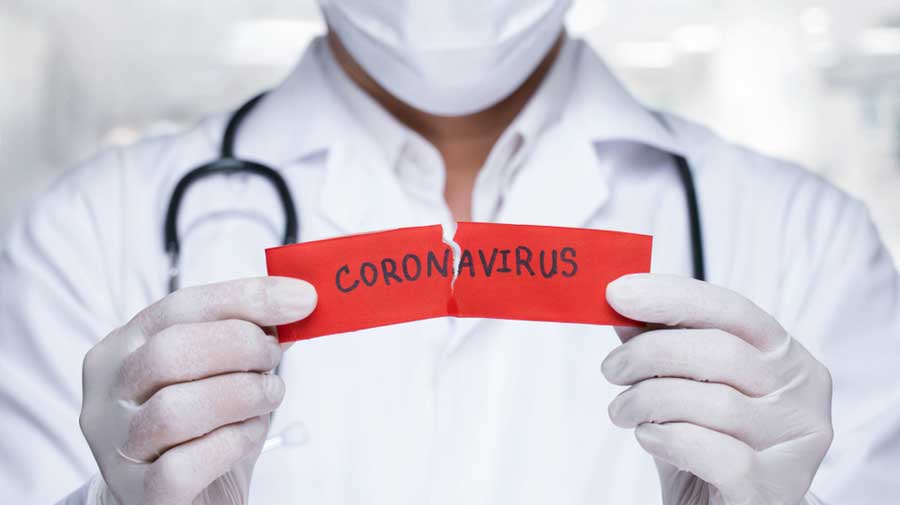In cancer, timely diagnosis is essential. It allows the disease to be identified at a treatable stage and prevents complications. But since the emergence of the coronavirus disease, the diagnosis and treatment of cancer has been negatively impacted.
The fear of contracting the coronavirus has made cancer patients reluctant to visit hospitals, delaying treatment. A higher death rate from Covid-19 has been reported in oncology patients due to their compromised immunity, which could be disease or treatment related. The lockdown and social distancing, though necessary non-pharmacological measures, have further aggravated the problem. Cancer treatment has taken a massive hit as almost 50 per cent of patients are reaching the hospital in the advanced stages.
Delays during oncological treatment can be classified as primary or secondary. A significant proportion of time is usually consumed in primary (interval between symptom onset and first visit to the clinician) and secondary (interval between clinician visit and start of treatment) delay in a majority of oncology patients awaiting treatment, especially in low-middle income countries like ours.
Breast cancer is the commonest cancer in women worldwide. Patients in India are relatively younger compared to the West. Breast conservation surgery is a safe and feasible option. A young woman diagnosed with stage II breast cancer in March was advised conservation surgery. She could not comply due to logistics. When she came back five months later, the disease had advanced so much that breast conservation was not possible.
In about 50 per cent cases, breasts can be conserved. If the cancer is detected early, almost all breasts can be conserved. So there is a need to create awareness about starting treatment early. Though we believe in “Big or Small — Save Them All”, chances of saving the breast decreases with advance in stage. Many patients report so late that the disease has already spread to other parts of the body.
There is a fear that there will be a “cancer pandemic” after the coronavirus one. In India, 50-60 per cent of patients anyway come in the advanced stages due to lack of awareness and screening. With the pandemic, this has gone up to 70-80 per cent. We are coming across patients who are so ill that they have become untreatable.
A patient from a neighbouring state came to us with cancer of the gall bladder and severe jaundice. At this late stage, the liver wasn’t functioning properly and the patient could only be given “best supportive care”. The survival rate in such cases is very poor.
Delay is detrimental to treatment. A patient diagnosed with stage II lung carcinoma in April reached stage IV by October as he couldn’t come for treatment. This affected his survival. There are multiple examples of patients reporting too late.
One reason for delay was transport restriction. Travelling to the hospital became a problem as local trains are not running. Hiring vehicles or taking accommodation near the hospital is usually unaffordable after the already high financial burden of treatment.
Other factors too contributed, such as a patient turning out to be asymptomatic Covid-19 positive. Lack of awareness, casual attitude to symptoms, self-medication, lack of facilities or resources too added to the problem. We have had a few patients reporting late for treatment because of severe financial crisis too, as many people have either lost their jobs or are working on reduced salaries. The cost of cancer treatment is definitely high, and nearly 50 per cent of our patients do not have any health insurance.
Some patients don’t want to come fearing a chance of getting infected by the coronavirus. I often point out to them, “We have a 1-2 per cent chance of dying if we get infected by the coronavirus but there is a much higher chance of dying if treatment is delayed.”
As oncologists, we have tried to tailor treatment such that it can be completed sooner and hospital stay is minimised. Hypofractionated radiotherapy has brought down the course of treatment for breast and prostate cancer from 6-8 weeks to 3-4 weeks, and to even one week in certain cases. This results in better treatment acceptance and compliance.
Since time is an important factor in oncology treatment, delivering optimal care during the pandemic is challenging. Striking a balance between delivering and delaying treatment becomes crucial not only for patients but also for clinicians.
In any case, cancer patients and oncologists have to be on their toes to win their battles against the disease. The coronavirus pandemic is another strike against them.
The writer is a radiation oncologist at a private hospital in Calcutta










